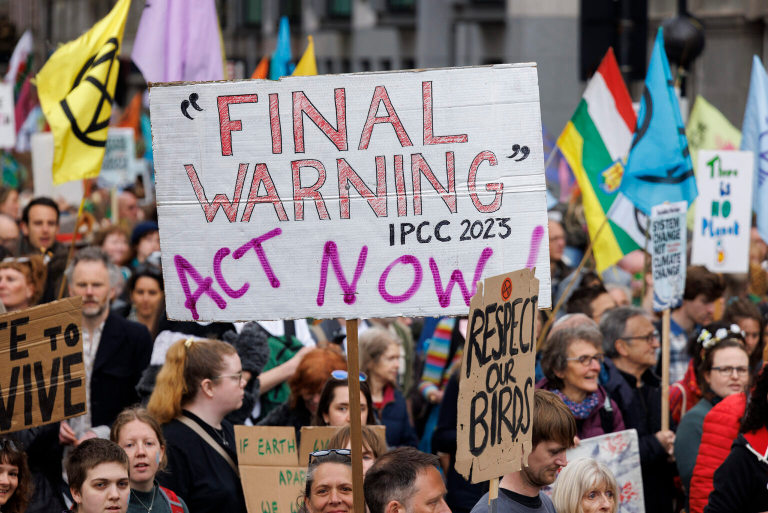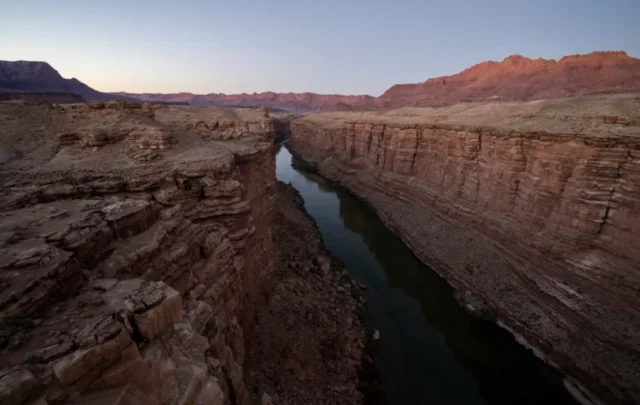Governments show time and again they won’t deliver adequate climate solutions of their own accord. If the world is ever going to get serious on climate, it will be because a mass movement of citizen action insists on it.
Except, no such mobilisation of citizens yet exists across the global north. Accordingly, nothing like sufficient bottom-up pressure exists to hold governments accountable for inadequate climate pledges, let alone policies commensurate with climate science.
This scarcity of citizen energy is not lost on campaigners and activists in the climate movement. To its credit, Extinction Rebellion (XR) UK walked the talk last weekend in London, attracting several tens of thousands to its law-abiding Big One gathering — a helpful test for anyone claiming that tactics matter when it comes to participation. XR UK had previously announced it would prioritise movement-building over its trademark disruptive tactics; doing so seems to have worked.
But the question remains: how to reach the broader public such that they not only feel met, but also empowered to act on climate breakdown in a way they find meaningful, and hopeful? It’s a question that a cohort of former XR UK activists and strategists — including myself — have been wrestling with ever since XR’s supernova rise stalled in October 2019.
It’s our response to the realisation that, while a wave of significant, widespread citizen action is yet to manifest in the UK, it is most certainly bubbling under. Contrary to conventional wisdom, climate-concerned citizens who feel the reality of the moment are not losing themselves in a downward spiral of doom and despair. They are finding their own relevant work to do, away from the more high-profile and polarising activities of Just Stop Oil. Wherever they are, in whatever ways they are able, they are finding their own agency.
In many ways we have XR to thank for the awkward soul-searching that followed. How effective was our own activism, really, if majority citizen action is what’s required to bring the necessary transformation? This interrogation of our own usefulness hasn’t always felt good. But it has yielded results. Next month, we will launch the Climate Majority Project in the UK.
Communities Of Support
The Climate Majority Project exists to grow this wave of action; helping the mass movement to become aware of itself. Across the country, from local climate hubs, to business decarbonisation; adaptation; land regeneration; local food and energy initiatives, and much more, people are coming together to seed the kind of climate action that can ultimately show governments people are hungry for change. We collaborate closely with a number of these groups — several led by former XR campaigners — helping them to grow, scale and replicate promising initiatives in key areas like community climate action, political transformation and rewilding, and in professional contexts such as law, finance and insurance.
This emergent response hints at a widespread citizen understanding that things are worse than governments admit on climate. People realise that top-down climate action isn’t going to hit warp speed just in time to avert catastrophe. But far from curling up in despair, they are asking themselves what they can do.
The DNA of the Climate Majority Project reflects this same pragmatic realism. We don’t shy away from the privately-held view among leading climate experts, that the world is already the other side of the Intergovernmental Panel on Climate Change’s ‘final warning’ of March this year. The window has closed for restricting average global temperature rise to below 1.5 Celsius.
Based on this stubbornly realistic understanding we aim to address the public as citizens rather than consumers, and most importantly as adults. Citizens deserve the truth about where we stand on climate, and together they’re showing that they can handle the truth, when they see something meaningful they can do about it together.
Some might read irresponsible doomism in our approach, but we believe that grasping our reality is the best way to motivate action. From workplaces to geographic communities, citizen-led efforts to initiate institutional change at the levels available to them will ultimately constitute the mass mandate we need for greater system change.
Certainly though, coping with the reality of the moment necessitates strong communities of support and connection. A key strand of our work concerns the cultivation of that support, with the understanding that collective empowerment is our best antidote to despair.
Above all then, we seek to connect people with offers to participate and take action; channelling the undercurrent of citizen energy we believe is already forming tomorrow’s climate majority. It may not (initially) garner the headlines of radical activists blocking motorways. But its sheer scale and steady spread is our best hope of reaching a societal tipping point for systemic change, that radical activism alone can’t bring.
Prof. Rupert Read, Co-Director of the Climate Majority Project.
Teaser photo credit; Protesters at the Big One in London. Credit: Extinction Rebellion.





